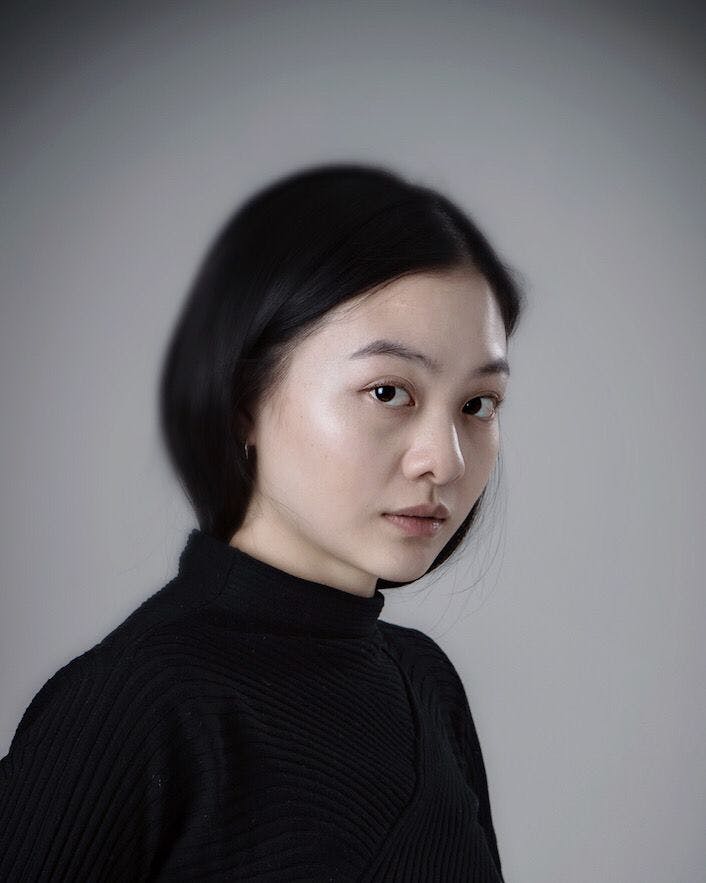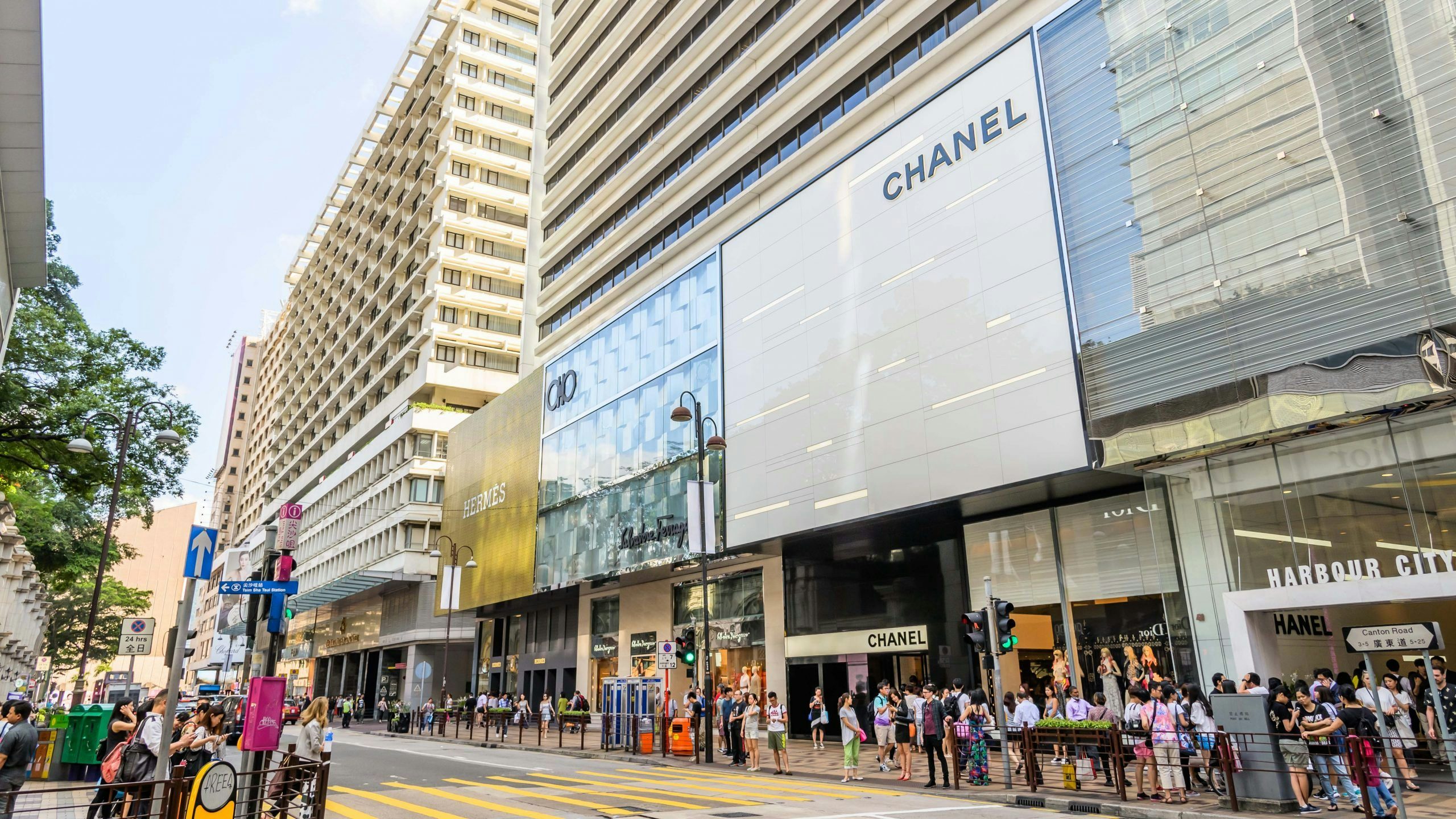Inside a quaint shop nestled in Hong Kong’s Sheung Wan district, Meiyan Chan rearranges her collection of clothing hanging along the window. It’s another busy Sunday for the Hong Kong-based fashion designer, who launched her own ready-to-wear collection of athleisure dresses and tops under her brand May 5 Moons (May五月) in May of this year.
“It’s just like normal again,” says Chan, who is showcasing her designs at a temporary weekend pop-up shop. “Things are like how they were a few years ago.” She is referring to life before Covid-19 lockdowns (and lockouts), as well as before the socio-political unrest of 2019 and 2020.
From fashion retailers to hospitality providers and financial institutions, many businesses in Hong Kong are hoping the special administrative region has turned a corner and have their eyes set on a new year.
The HKSAR government forecasts that the city’s economy will expand 3.2 percent this year, a downward revision to its previous 4 percent to 5 percent forecast. Meanwhile, the government's latest data shows that GDP in Q3 increased 4.1 percent compared to the same period last year.
“Looking ahead, inbound tourism and private consumption will continue to underpin economic growth for the rest of the year,” Hong Kong financial secretary Paul Chan told Bloomberg TV on November 10.
Chan, the designer, says she has been selling her collection through a multi-brand store called Stories, where sales are flourishing according to the retailer.

“They say sales are doing great,” Chan says. “They do no promotions, nor try to attract customers from China … mainland Chinese travelers go directly to the store because it’s located inside of a mall they like to visit.”
That mall is K11 Musea, a retail space owned by K11 Group, located along Victoria Harbour in one of the city’s top tourism hotspots — Tsim Sha Tsui.
Experiential retail reshaping Hong Kong shopping#
K11 Musea, which opened in 2019, is among the top retail offerings of Hong Kong developer New World Development (NWD). Launched by NWD CEO and vice chairman, billionaire tycoon Adrien Cheng, the mall touts its unique selling point as its “cultural-retail” approach, calling itself a “museum retail concept and hybrid model of art and commerce.”
According to the K11 Group, both K11 Musea and its sister space K11 Art Mall, witnessed a surge in visitor numbers over October’s Mid-Autumn Festival and National Day holidays, with foot traffic rising 70 percent compared to the corresponding period the previous year. Meanwhile, sales climbed over 40 percent year on year.
A mix between a retail mall and an art museum, K11 Art Mall frequently hosts art exhibitions and events.
The art mall is one of several retailers experimenting with new ways of attracting consumers. K11 is launching “KidZania,” a 353,031-square-meter indoor children’s play complex that will serve as a venue for family entertainment.
When asked to comment, the retailer declined to speak about its plans.
Meanwhile, fellow property developer Nan Fung Development launched Airside, a 65,000-square-meter “mixed-use,” pet-friendly leisure, culture, and green living space located in the city’s Kai Tak area that has seen over 80 percent of its outlets leased, reports The South China Morning Post.

According to Nan Fung Group’s website, Airside introduces “the concept of ‘wholeness’ that connects people and nature.” Launched in September this year, the space hosts exhibitions and programs, as well as commissioned artworks for visitors.
These moves reflect wider trends taking place in the retail industry. As Jing Daily revealed earlier this year, Chinese shoppers are increasingly looking for retail experiences that extend beyond pure consumerism — via uniqueness, exhilaration, and a trendy environment that encourages social interactions.
Outlets that provide experiential encounters have the potential to boost sales by engaging consumers in a deeper way that results in deeper emotional bonds and a greater sense of loyalty towards brands.
A new generation, a new era for hospitality#
Despite the calm of the Sheung Wan neighborhood, filled with quaint colonial buildings, tiny coffee shops, and dozens of independent retailers, Meiyan Chan, the fashion designer says business conditions have much improved since the pandemic.
“These days, there are so many people,” she says. “People from Europe, the mainland, Southeast Asia.” Since the city’s reopening, Chinese tourism has yet to return to pre-pandemic levels, though recent numbers have shown some promise. In August, the number of mainland visitors rose to 92 percent of that of 2019, though in October that figure dipped to 73 percent.
With the rise of “a new kind of post-pandemic tourist” that prefers “low-key” pop culturally relevant activities to spending on luxury, according to Bloomberg, businesses in the city’s hospitality sector are evolving to better align with Gen Z and millennial tourist profiles.
Eaton Hotel, also known as Eaton HK, owned by developer Great Eagle Holdings Limited, is one such brand. “You will notice that we take a storytelling approach, focusing on the various cultural, art, and impact projects happening around the hotel,” says Harvey Thompson, managing director of Eaton Workshop.
“With our Chinese social media platforms, we try to take the same approach … For example, during our annual Women’s Festival in March, we published a visitor’s guide to our screenings, talks, and other events … exclusively for our WeChat audience,” he says.
Films from past years’ festivals have included My Body Is My Battlefield and other independent local productions.

Thompson says that the year started slowly for Eaton in terms of occupancy due to the impact of travel restrictions. “However, we rebounded to over 89 percent from February and remained robust until Q4 of this year,” he says. “We have seen a slight downturn in October and November, with international travelers slowing down in Hong Kong. But we remain positive for a stronger December and expect the full year’s occupancy rate to be above 87 percent.”
Much like other major cities, Hong Kong's identity as a shopping and tourism hub is changing, with an increased emphasis on unique and experiential offerings, says Sherona Shng, regional vice president of operations in Asia and managing director of The Langham Hong Kong, a retail and hospitality space under Langham Hospitality Group.
“Tsim Sha Tsui, where our hotel is located, has many such offerings to complement its traditional role as a shopping hub,” she says.
Shng says that The Langham is responding to this shift through marketing initiatives, such as by collaborating with its sister property in Shenzhen to promote activity-rich “cross-border stay experiences” to travelers across the Greater Bay Area.
“At the same time, we are backing an increasing number of projects with local artists to allow our guests to enjoy the creativity of Hong Kong,” says Shing.
“We very much want to be an ambassador of the city and to showcase its unique attributes through the lens of [our hotel].”
Key Takeaways#
- Hong Kong's retail sector is showing signs of recovery post-pandemic and amid socio-political uncertainties, as evidenced by flourishing sales in multi-brand stores.
- Economic forecasts indicate a 3.2 percent growth in Hong Kong's economy, with emphasis on sectors like inbound tourism and private consumption driving the recovery process.
- Innovative retail concepts such as K11 Musea and Airside are reshaping Hong Kong's shopping landscape by offering immersive experiences blending art, culture, and leisure to attract both local and international consumers.
- Adapting to changing tourist preferences, hospitality brands like Eaton Hotel are focusing on cultural and impactful initiatives to engage with the younger demographic of Gen Z and millennials.
- Responding to evolving trends, hotels like The Langham Hong Kong are embracing collaborations with local artists and promoting cross-border stay experiences to showcase the city's unique attributes beyond traditional shopping and tourism, catering to the diverse interests of contemporary travelers.


